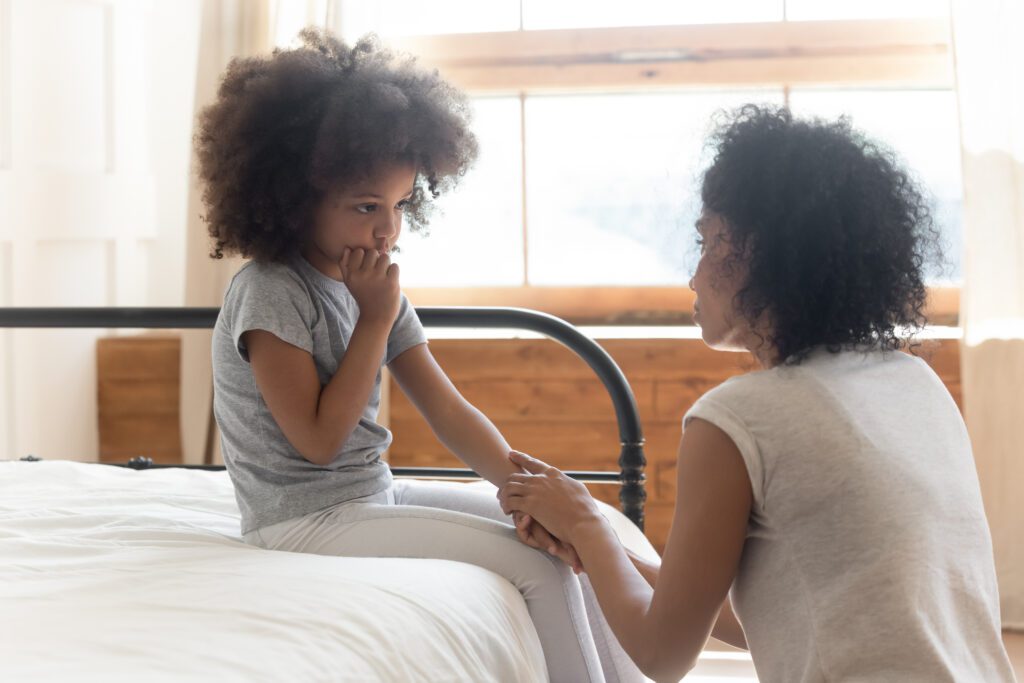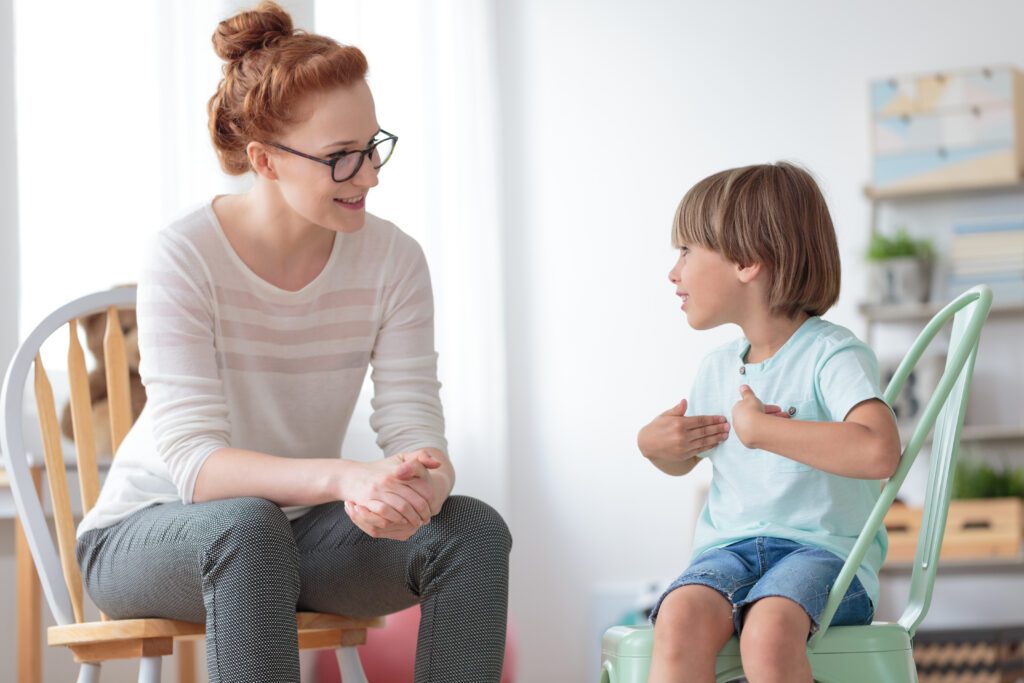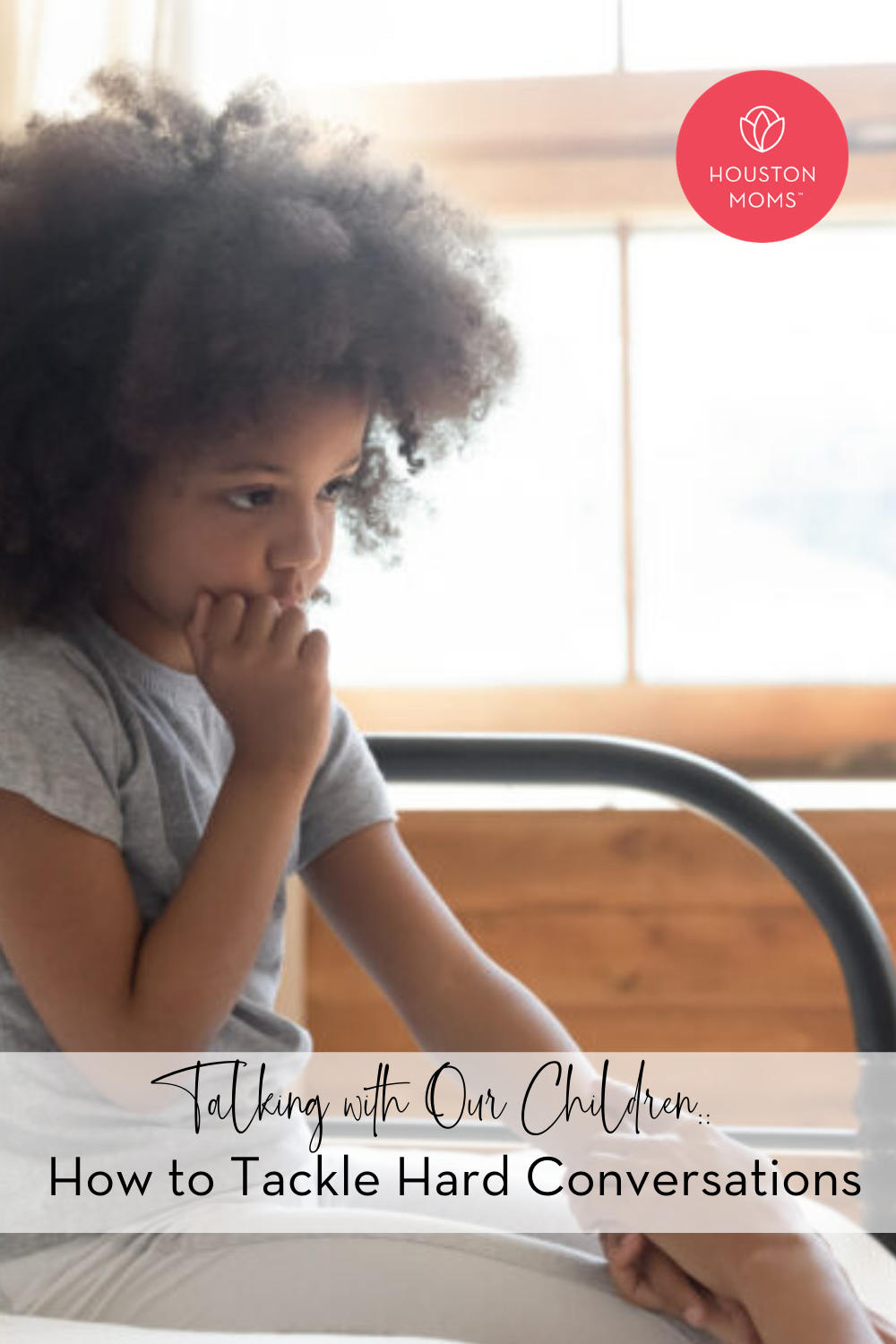As a mom, I struggle with deciding when to have hard conversations with my son. When something happens, I question myself into a circle:: is it ok to talk about this? Will he understand? Am I doing the right thing? Even as the questions swirl in my head, the one thing I know for certain is this:: as his mom, I should be the one to tell him when hard or scary things happen. My husband and I should always be the ones to sit him down, hold his hands, look him in the eyes, and be open and honest with him. Regardless of the situation, whether a death, an illness, a bully on the playground, or something happening in the world around him, as his mom, I know it should be me. Even when it’s hard, it should be me.
Talking With Our Children
As parents, we should not shy away from these conversations; we owe it to our children to be open and honest. As parents, we must be the ones, even when it is hard and scary, to talk with them. One of our roles is to lead, guide, support, and prepare our children when they face hard things without us right by them. Now is the time in which we begin laying the groundwork for that time, and it means we cannot hide the hard things, the scary things, or the things that make us question or want to turn away. It means we talk to our children.
As a pastor and hospital chaplain, I know how hard it can be to find the right words to comfort or assure others that things out of their control occur. As a parent, I know how hard it is to sit my son down and talk to him and say the right thing. I understand the worry and angst that goes with these conversations, but I also know how important they are.
Tips for Having Hard Conversations
Here are a few tips for talking with children, and using these conversations to help your child and your family. Every child will process differently, and every parent will navigate these conversations in their own way. These are not fixed rules, but tips to help you develop a conversation method.
- Open the conversation. This simply means you talk to your children or your teens and explain what happened in simple sentences. Explain what took place, how it impacts them, and what it means for your family or world around them. This is not talking at your child, but with them. You open a conversation that they know is a safe space and one they can be a part of.
- Let them see your emotions. If something has happened that has warranted a conversation, let your children see your emotions. This will help them understand that showing and displaying their emotions is good and healthy. Kids and teens are always navigating how to control and display emotions, so let them see yours, and in seeing yours, they will feel safe to show theirs.
- Let them ask questions. It’s scary to ask your child if they have questions, knowing they could go off-topic or ask something we do not know. When we let children ask questions, we show them how valuable we think they are. Even if you do not know the answer, be honest and tell them, but tell them you will discover because it is important to them and they are important to you. When children ask questions, they want to understand more. Questions allow for the connection and openness children need to grow and develop.
- Validate their feelings. One of the most impactful things I have seen when bad news is given, or hard conversations take place, is the validation of feelings, whatever they are. We need to ask our children how they feel, and it is equally important to acknowledge those feelings, even if they are not our feelings and even if we do not understand them. Let them know their feelings are valid and safe with you. They need that, and as parents, we can provide their feelings with the safest of places.
- Make a plan. After the talking, questions, and processing have happened, plan to move forward. This can be prayer, if that is a ritual within your family, it can be a way to remember someone who has passed, or simply a weekly check-in to see how everyone is. As the parent, you will know what will work for your child. But the most important part of this is that together, you move forward. Moving forward helps children see that even if what has happened is beyond their control, they can control how they react. Provide them with ideas, but also let them think about how they want to move forward and then hand and hand, move forward with them.
Here is an excellent resource that helps break these and further tips down even farther based on your children’s age.
Will this always be easy? Of course not, but it always is worth it. Because when it is over, when the questions stop and the angst passes, we will have a generation of children who know the importance of conversation, the validity of emotions and feelings, and understand we move forward together.


















